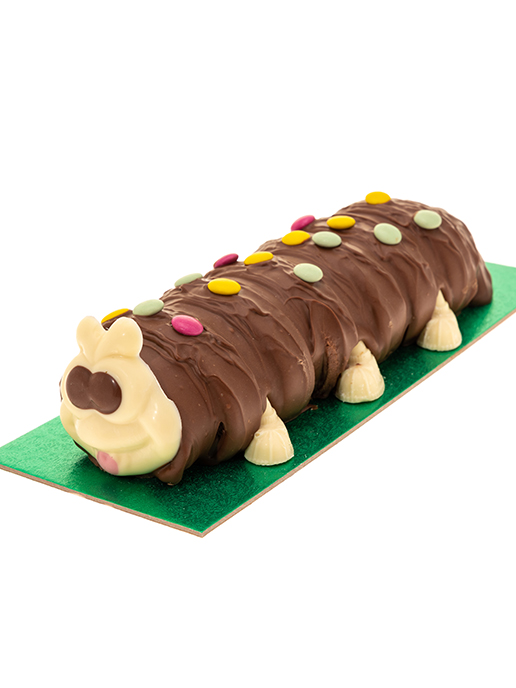Remember the supermarket feud between Colin the Caterpillar, in the Marks and Spencer corner, and Cuthbert, in the Aldi corner?
It was a light-hearted story which nevertheless raised numerous very interesting legal points.
It’s fair to say that most, if not all, supermarkets have their own versions of more famous brands, be that chocolate bars, fizzy drinks, tea bags etc. It is also no coincidence that pretty much every supermarket’s cola has a red-and-white label. But when does this branding cross the line into being unlawful? It’s a battle that has raged over the years, with brands keen to protect their intellectual property (IP) against those they feel are gaining an unfair advantage on the back of their success.
The M&S cake, Colin, has been in existence for over 30 years and was registered as a trademark in 2009. Virtually all the main supermarkets now have their own version: there are Clyde (Asda), Wiggles (Sainsbury’s) and Curly (Tesco) to name just a few.
There are various ways of protecting IP, and there are several ways of trying to enforce your rights to prevent others from gaining an unfair advantage off the back of your design.
A trademark requires formal registration with the Intellectual Property Office (IPO), and generally protects the name or the logo. So, in this instance, the trademark would only protect the name ‘Colin the Caterpillar’. With that in mind, the other supermarkets could of course argue that Clyde, Curly, or indeed Cuthbert, are not the same or sufficiently similar enough, and are therefore not infringing, in the same way that Paddington, Winnie the Pooh and Rupert are not treading on each other’s toes – not legally anyway.
UK copyright law is set out in the Copyright Designs and Patents Act 1988 (CDPA). Copyright protects the form of expression of an idea, not the idea itself. For example, if you have an idea for the plot of a movie, that idea, while still in your head or even if communicated verbally to others, will not attract copyright. However, as soon as you commit that movie plot to paper, it becomes a work capable of copyright. To get copyright protection, material has to be the result of independent intellectual skill and effort.
As such, copyright does not protect the idea of having a caterpillar cake, rather the way that that idea is expressed. Here it would seem relatively clear that each supermarket can have its own caterpillar cake, just as each shoe manufacturer can have its own pair of brown brogues. Possibly, M&S would be on firmer ground if they had taken a zero-tolerance approach to all caterpillar cakes from the word ‘go’.
Finally, there is the law of 'passing off'. This is the area of law that protects the reputation and goodwill of a business and prevents people from selling goods under the pretence that they are the goods of another. It serves to protect the trader against the unfair competition of his rivals and also protects consumers who would otherwise be confused as to the origins of goods and services that they are offered.
To bring a successful passing-off action, the claimant must show three things:
- that goodwill or reputation is attached to the goods or services
- a misrepresentation is made to the public by the defendant
- that damage is suffered by the claimant
In a case like Colin and Cuthbert, it would be easy for M&S to clear hurdle one – they have a well-known brand in Colin – it’s the other two limbs of the action that are likely to become the battleground:
- Are people confused, or likely to be confused, about a link between Cuthbert and Colin?
- What loss does M&S suffer? After all, if I shop in Aldi, I am likely to buy Cuthbert, and in M&S, Colin?
You may therefore think that Aldi has a decent defence in this regard. However, in a previous case before the courts, a well-known chocolate manufacturer introduced a new ‘Puffin’ chocolate biscuit to compete with a rival chocolate maker's long-established ‘Penguin’ chocolate biscuit. It was deemed that there was every chance a buyer would think that the Puffin was a Penguin biscuit company product. Therefore, passing off was demonstrated and as such the Puffin was held to be unlawful.
Arguments with regard to IP rights are often very complicated and full of subtle distinctions. Disputes can range from songs that sound alike, to movies or books with similar plots, to logos that appear the same. There is clearly a line that can be crossed, but where that line is drawn has been a matter that has been argued and litigated about in the past, and no doubt will be long into the future.
